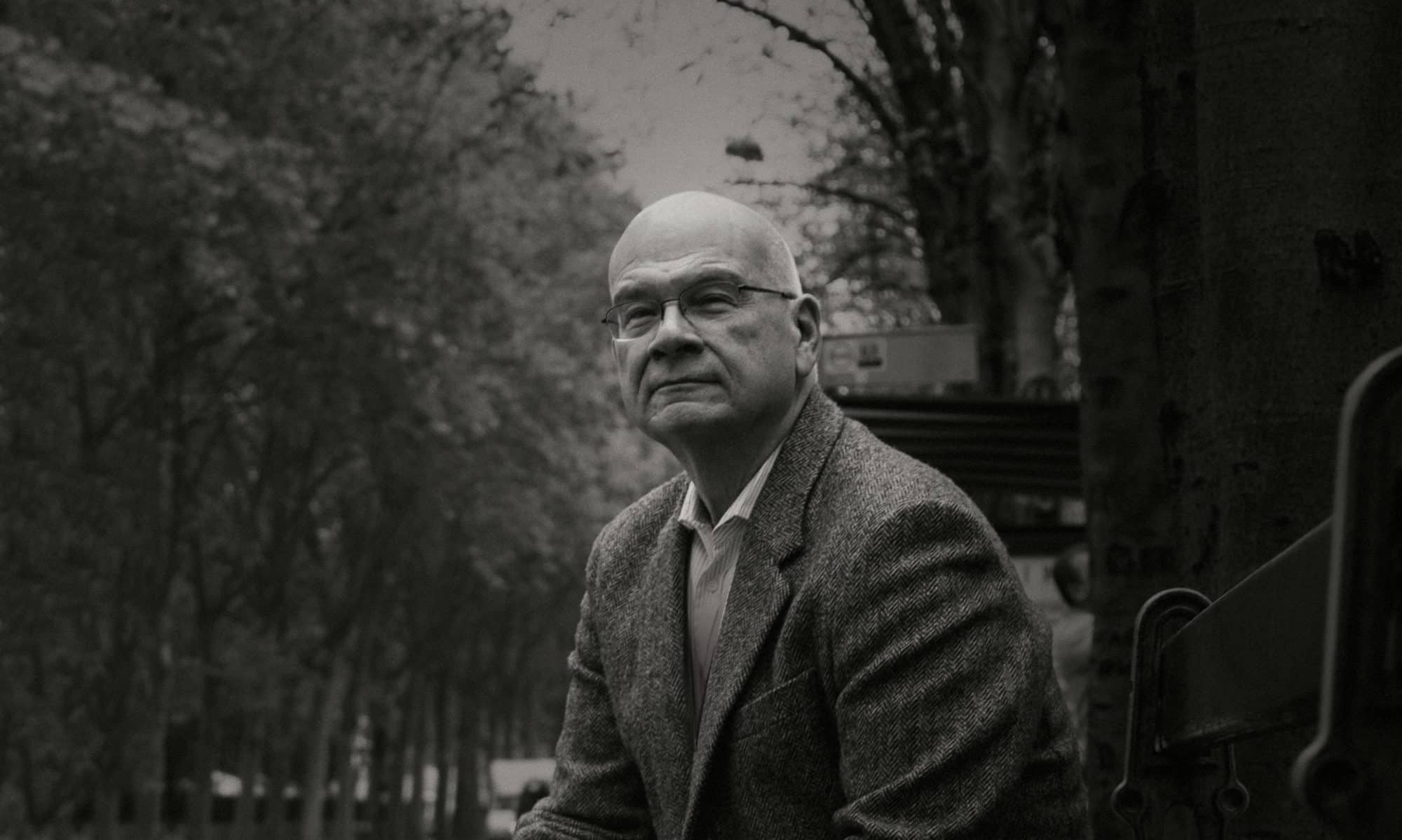Our review of Timothy Keller’s new biography
Timothy Keller was a man of profound intellect, humility, spiritual and philosophical insight, humour and wisdom. This biography offers readers a glimpse into his life and character.
I felt moved, challenged and hopeful as I read about the enthusiasm and endless energy that he threw into his life’s work—listening to culture and carefully bring the answers of the Bible to a post-Christian culture. His lifelong yearning for revival sprang off the pages. I hope you enjoy it as much as I did.
You can purchase the Tim Keller biography by ordering from Gospel Supply now:
Timothy Keller’s influence
Timothy Keller has influenced much of Western modern evangelical Christianity whether we are aware of it or not. Founder of The Gospel Coalition (TGC), founding pastor of Redeemer Presbyterian Church in New York, and writer of several bestselling books including The Reason for God and The Prodigal God – Keller’s work has influenced millions of people around the world.
The church I attend draws much from his lifelong work, and I personally participated in a 9-month version of the Gotham Fellowship course here in London. This was a programme created by Timothy Keller in New York, towards a vision of ‘whole-life discipleship’, integrating work and faith, and preparing Christians for meaningful work in the secular, post-Christian landscape we now find ourselves, in the West.
Around the same time that I heard of Keller’s passing earlier this year, a preview copy of this biography landed on my desk. I thought it would provide a great chance to learn more about the man behind the words that had inspired me. I’m glad I did! Below, I’ve outlined some of the contents of the book, as well as a few key insights and quotes.
About the biography of Timothy Keller
This biography of Tim Keller’s life is arranged into four, chronological parts. It draws together interviews, thousands of sermons, books and articles to help give us a broad picture of the man Timothy Keller, and how God used him. Occasionally the biography seems too good to be true, but one line in the book points to the reality:
You won’t find leaders close to Keller who idolise him. And that’s not because they think he’s fake. They know his weaknesses, his penchant to please people and avoid conflict. He’s transparent about his sins. And they know from his teaching that it’s not safe to idolise anyone or anything. But they do admire him for his character. (Page 214)
Above all else, this biography is about God making and shaping the character of a man who tried his best to live for Him, and ran the race honourably, finishing strong at the end. Praise God.
Keller’s formative years (part one)
Titled ‘Honest to God’, and covering the years 1950 to 1972, this first section of the book covers his upbringing. He grew up with a matriarchal Italian Catholic mother, and experienced legalistic Christianity through his early-years church experience. It was clear that by the time he attended college, Keller was alarmed by the status quo for Christians in America at the time, especially regarding racial injustice in the era of Martin Luther King Jr. As Keller wrote in his book, Generous Justice:
Although I had grown up going to church, Christianity began to lose its appeal to me when I was in college… Why, I wondered, did the non-religious believe so passionately in equal rights and justice, while the religious people I knew could not have cared less?
We learn a little about Keller’s early life, but you get the sense that he didn’t consider his early life story as exciting as the gospel stuff. Or perhaps there is just so much to cover in the biography that Collin Hansen didn’t want to dwell on the earlier stuff, which might not be of interest to the majority of readers.
We quickly move on to learning about Barbara Boyd. Barbara was a key influence as a long-serving, faithful Bible teacher at InterVarsity. (For non-US readers, InterVarsity is described on their website as an inter-denominational, evangelical Christian campus ministry founded in 1941).
Boyd taught that if this Jesus reveals himself in his Word, then we should give careful attention to it. (Page 32)
The methodical, 9-step Bible study approach that Boyd used and taught to students like Keller is helpfully laid out in this chapter. It’s extremely useful and I’ll be revisiting it over and again! The method became the standard way that Tim Keller would prepare for his sermons over the decades following.
Keller’s student years (part two)
In the second section, ‘Professors and Peers’, I must confess I didn’t necessarily understand everything! The educational Christian ‘seminary’ scene in the US is quite different to anything I know here in the UK. We don’t call them seminaries, for one thing – and Westminster is where all our politicians go, not our pastors! While many of the people and denominations may be quite familiar to American readers, it didn’t always land for me in my context.
That said, the thing that stands out is Keller’s bright young mind that thrived in an academic context. At a young age he was an intellectually curious person who loved to learn. He was a listener who naturally took others under his wing. He even provided post-lecture teaching, breaking down subjects, better than the professors would, so that his classmates could understand them.
For a precocious student such as Keller, the high-level philosophical engagement of (C.S Lewis, J.I. Packer, Paul Little, Francis Schaefer and John Scott) showed him you could be intellectually serious and also a Christian. (Page 20)
Through InterVarsity, Keller learnt:
…that Christians must never compromise on their core values, which he identified as the infallibility of the Bible, the substitutionary death of Jesus on the cross, the necessity of the new birth, and the full deity of Jesus. (Page 40)
We’re also introduced to Kathy Keller (Tim’s wife) in chapter four, titled ‘Kathy the Valiant’, who appears to be, in every way, Tim’s match: a pen-pal with C.S. Lewis at an early age, a listener, an apologist and evangelist, and later, the editor of all of Keller’s books. They deeply rooted their partnership in Christ. The inscription on their wedding rings read:
“O magnify the Lord with me, and let us exalt his name together!” (Psalm 34 v3)
Keller’s ministry (part three)
In the third section of Keller’s biography, we see the beginnings of his ministry. “Trial by fire” is a phrase that most first-time pastors can sympathise with! Unlike anything he had done before, he ministered to people from quite a different background than conversing with his academic friends. Here Keller had to learn contextual mission, the hard way!
Also covered in this section is Keller’s passion to see unity between evangelical churches. He founded The Gospel Coalition with the vision to see local churches cooperating and working together. He felt that churches should align with denominations that broadly agreed on matters, aligning together against the values of secular culture rather than critiquing one another which would, “play into the common defeater that all Christians are intolerant.”
Over the years, critics would fault Keller for partnering across denominations with pastors who succumbed to the pressures to accommodate. But he never gave up hope that a movement of churches would emerge and combine innovative evangelism with doctrinal preaching, personal holiness with artistic excellence, radical sharing of resources with robust integration of faith and business. (Page 175)
Keller’s New York and global ministry (part four)
The final part covers the most time (from 1989 to the present). While covering many events, the broad focus for me is character. As Keller says:
“I continually observe that ministry amplifies people’s spiritual character. It makes them far better or far worse Christians than they would have been otherwise, but it will not leave anyone where he was!” (Page 215)
God was refining the couple through many challenges—especially health. They battled Crohn’s disease (Kathy, diagnosed in 1991), thyroid cancer (Tim in 2002) and later pancreatic cancer (Tim in 2020). Each of these diagnoses drove Tim and Kathy into a deeper, more intimate prayer life with God.
New York’s citizens flocked to hear Keller preach at Redeemer Presbyterian Church. Here was a preacher who would ‘quote C.S. Lewis and Jonathan Edwards alongside Madonna or Woody Allen’. He ‘quoted the artists and thinkers his audience respected to support biblical conclusions.’ Tim’s aim with Redeemer was:
to translate for the local church the best parachurch insights that he had seen and experienced himself. Redeemer challenged both legalism and relativism, confronted personal idols as well as cultural idols as dead ends to self-salvation, and evangelised non-Christians while edifying Christians at the same time. (Page 198)
After 9/11, objections to Christianity gained traction, especially in New York. Timothy Keller had spent years listening to the citizens of the city. He was well placed, both spiritually and intellectually, to help answer many of their objections. Keller’s book writing also came together during this time, with objections to New Atheism based on science in The Reason for God.
I found the account of 9/11 to be particularly moving. Keller’s church in New York had over 5000 people queuing out of the door and around the block the following Sunday. Grief had hit the city. He preached an incredible sermon on Jesus weeping at the death of Lazarus, saying:
When somebody says to me, “I don’t know that God cares about our suffering: I don’t know that God cares about it at all,” I say, “Yes, he does.” They say, “How do you know?” Well, I’ll tell you something. If I was in any other religion, I wouldn’t know what to say. But what I can say is the proof is he was willing to suffer himself. I don’t know why he hasn’t ended suffering and evil by now, but the fact that he was willing to be involved and he himself got involved is proof that he must have some good reason, because he cares. He is not remote, He is not away from us. (Page 224)
He also quoted a passage from The Lord of the Rings during this emotional sermon:
“In the last book of The Lord of the Rings, Sam Gamgee wakes up thinking everything is lost, and upon discovering instead that all his friends were around him, he cries out, “Gandalf! I thought you were dead! But then I thought I was dead! Is everything sad going to come untrue?” The answer is yes. And the answer of the Bible is yes. If the resurrection is true, then the answer is yes. Everything sad is going to come untrue.” (Page 57)
Summary
Much like Keller’s ministry, the book covers a wide range of subjects. It doesn’t shy away from discussing theology, denominations, challenging characters, and emotional stories. I’ll close with Keller laying out his challenging manifesto for churches that wish to thrive in secular cities:
“(We have to) admit the church’s historic failures to execute on it’s own Biblical principles—the (image of God) dignity of every human being, love for opponents, universal care for the suffering, and justice for the oppressed—even as we argue that the source of this warranted critique is Christian truth itself. It means to neither dominate nor withdraw from society, but to provoke and yet to serve.”


